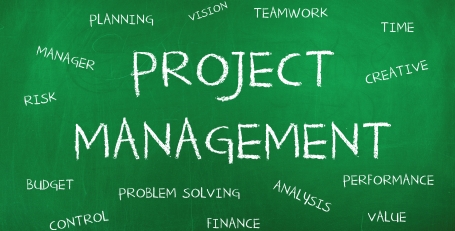By definition, a project is a short-term undertaking to create a product or provide a service that is not part of day-to-day business operations. Based on this, the success of a project depends on how it is managed.
When you are teaming with an electronic manufacturing services (EMS) provider, you want them to be as invested in your project as you are. This is where the dedicated project manager at your EMS comes in. When projects are managed properly, profits increase and businesses can grow. A project manager increases the likelihood your electronic assembly will be successful and profitable.
What is a project manager?
The project manager carries operational responsibility for the project. The program team – primarily composed of sub-project managers – supports him or her in this. In addition to the tasks of a project manager, this role has to identify dependencies and interfaces among the sub-projects. Central and active management of these dependencies and interfaces is a further responsibility.
Project managers work with specific customers to ensure their expectations for products and services are met. Their main goal is to ensure electronics projects are completed on time, stay within budget, and meet all customer requirements. These managers oversee day-to-day program responsibilities such as scheduling, planning, and pricing. Additionally, they work with purchasing and sales to ensure that all programs and products are cost-effective.
Project management responsibilities inside an electronic contract manufacturer can vary based on the type of products going into production and the industry in which manufacturing takes place.
Single point of contact
In most instances, all of the information regarding a project should flow between the customer and the project manager at your EMS. Program management is the only functional department that is allowed to commit to the customer. Managers work with customers to ensure customer satisfaction, streamline communications and anticipate additional support resources. In short, project management’s role is to transform the customer’s vision into an executable plan.
Key to Success
Project Managers have the capability of putting your project through all the important phases for it to succeed. Removing or even replacing them can seriously damage the development process. This often occurs in outsourcing projects. Therefore the benefits of teaming with an EMS that has a dedicated project manager, for your electronic assembly, far outpaces the risk.
Each of the following project manager functions is crucial to making your project a success:
- Provide Direction – The first goal of the project manager is to carefully analyze the requirements and vision of the project. They then plan out the workflow and give the project a direction to proceed in.
- Increase Efficiency – The project manager is the one that defines a workflow for the development team and assigns tasks based on the expertise of each. The project managers also mediate the communications among various teams in order to keep all the work in synch.
- Control Scope of the Project – The scope of the project includes the various components that are required to put the project together. The project manager mediates the development of all the components and their compilation, making the process much faster.
- Manage Project Costs – Financial constraints are always a major concern for any project. Project managers are the ones who keep a check on the costs of various resources of the project that include developer costs, equipment costs, time delay costs etc. They are also responsible to keep the project within the defined budget.
- Manage Project Schedule – The project manager controls the project schedule by examining milestones, key dates and the critical path throughout the project development lifecycle. This also includes calculating the time a task takes and solving any problems that may delay them making their deadlines.
- Deal with Risks – No matter what the project is, it always carries a high potential of risks. A Project Manager assesses their impact and plans to either avoid them before they occur or manage them efficiently in case they occur unexpectedly. They make sure that your project does not face any undesirable implications in any way.
- Close the Project – Once the project is completed, the project manager delivers the project to the stakeholders. They then proceed to document the project life cycle and evaluate each phase. This evaluation helps you plan your next project more efficiently avoiding all speed bumps and probably saving a lot of resources.
Having a Project Manager increases the likelihood a project will be successful and profitable, enabling your business to grow.
Disclosure: We might earn commission from qualifying purchases. The commission help keep the rest of my content free, so thank you!




